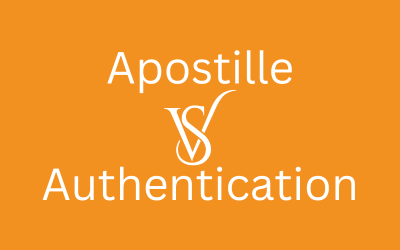Most states require Limited Liability Companies (LLCs) and Corporations to submit some form of ongoing business entity filing. While many states require these filings annually (i.e., annual reports), several require them biennially (every two years).
A biennial report allows the Secretary of State office (or comparable government office) to keep up to date with a company’s vital information. States also require businesses to pay a fee when submitting their filing. Each state sets its own due dates for companies to file their biennial reports, so deadlines vary from state to state.
Business owners should stay on top of their due dates to avoid the worst-case scenarios that no entrepreneur wants to encounter. If a business fails to file its biennial report, the entity could be subject to penalties, late fees, and even suspension or administrative dissolution. In other words, the state would no longer consider the company a legal business entity. As a result, the business owner would lose all personal liability protection afforded by being an LLC or C Corporation.
Biennial Report States and Due Dates
Below, I’ve listed the states that require biennial reports for LLCs and C Corporations and their filing deadlines. Note that LLCs that have filed for S Corporation tax treatment remain LLCs for biennial reporting purposes, therefore they follow the LLC deadlines not those for Corporations.
C Corporations
- Alaska – Due by January 2
- Iowa – Due by April 1 (in even years)
- Indiana – Due by the last day of the entity’s formation anniversary month; called a Business Entity Report
- Nebraska – Due by March 1 (in even years); called a Biennial Occupation Tax Report
- New Mexico – Due by the 15th day of the 4th month after the close of the fiscal year
- New York – Due by the last day of the entity’s formation anniversary month; called a Biennial Statement
- Washington DC – Due by April 1; first report due in the calendar year after the business was registered
Limited Liability Companies (LLCs)
- Alaska – Due by January 2
- California – Due every other year by the last day of the anniversary month of the business formation date—i.e. If the entity was formed on January 1st, 2022. Its biennial report would be due by January 31st of every even numbered year (2024, 2026, etc.)—may file as early as five months prior to the due date; called a Statement of Information
- Iowa – Due by April 1 (in odd years)
- Indiana – Due by the last day of the entity’s formation anniversary month; called a Business Entity Report
- Nebraska – Due by March 1 (in odd years); called a Biennial Occupation Tax Report
- New York – Due by the last day of the entity’s formation anniversary month; called a Biennial Statement
- Washington DC – Due by April 1; first report due in the calendar year after the business was registered
Among the states listed above, California (LLCs and Corporations) and New Mexico (Corporations) also require businesses to submit initial reports right after they have formed their entities (usually within 90 days of registration). Initial reports contain information that’s similar to what’s requested in the ongoing biennial reports.
Because states’ rules vary and may change over time, I encourage entrepreneurs to check with the agency that oversees their state’s business compliance matters to confirm their requirements and deadlines.
File Like a Pro
Let CorpNet handle your biennial report filing to ensure it’s accurate and meets all your state’s requirements!
How to File a Biennial Report
Filing a biennial report involves completing the state’s form and submitting it, along with paying any applicable filing fees. Most states provide their forms online (either on their website or via a business portal) so that business owners can input their information and submit it electronically, along with their payment.
Most forms are relatively simple and straightforward. However, if a business accidentally makes any errors on its form, it can delay approval of the filing and result in additional fees.
States’ processing times vary. I recommend that business owners aim to file their biennial reports a few weeks ahead of when they’re due in case corrections are needed and they must refile.
Information Requested in a Biennial Report
Biennial report filings collect similar types of information as annual reports do. The requested details vary depending on the state. The points below are some examples of what a state might ask for on its paperwork.
- Name of the LLC or corporation
- Address of the business’s principal location
- Registered agent name and address
- Names and addresses of the LLC’s members and managers
- Names and addresses of the corporation’s officers and directors
- Type of business activity the company conducts
Costs to File a Biennial Report
The state fees for filing biennial reports vary by state and the type of business entity. Costs range from $9 to $300, with most states falling somewhere near the lower end of that range.
A business will likely incur a service charge, too, if using an attorney or other third party to complete and submit its biennial report. However, that additional fee can be well worth it because it will help ensure the filing is done accurately and on time.
How to Keep Track of Due Dates
Some states send email notifications about upcoming due dates, but it’s always best to mark deadlines on your calendar and set reminders for yourself so nothing slips through the cracks.
Another way to keep track of what your business needs to file is to create a free CorpNet account and use our compliance portal to monitor requirements (such as annual reports, biennial reports, tax deadlines, and business license renewals) and deadlines for one or multiple businesses. You can use our portal to stay on top of your compliance responsibilities even if you don’t use our filing services, so there’s no reason not to set up an account!
Do It Right With CorpNet’s Help
To avoid mistakes and confusion, ask CorpNet to handle completing and submitting your biennial report forms for you. Our expert filing specialists are here to ensure your biennial reports and other business filings are completed correctly, on time, and as affordably as possible. Companies of all sizes and all entity types across all 50 states trust us with their formation and compliance filings. We’d love to help you, too!





